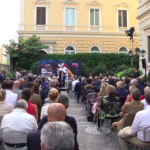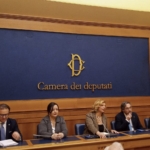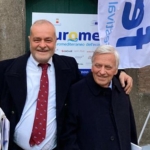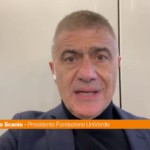Eunavfor Med is ready for the operational phase B2. The war against the traffickers in the Mediterranean will be fought in Libyan territorial waters, «but many political and legal challenges must be solved before we can recommend this transition», says Admiral Enrico Credendino, head of the European mission. Critical issues depends on the failure of the executive of national unity, without which the United Nations can’t authorize the arrest of traffickers and the destruction of the means directly on the ground. On 7 October 2015, the European Parliament announced the strengthening of military missions in the Mediterranean, aiming to board, search and seizure the boats used by the smugglers. While the December signing in Morocco between some members of the Libyan social and political life for the formation of an executive of national unity turned out to be illusory, the head of mission of the United Nations Support (Unsmil), Martin Kobler, has welcomed the release of the establishment of the national unity government approved by the majority of the Libyan Parliament. But this announcement is not official. Waiting for a political stability that averts the threat of Daesh and legitimate EuNavFor Med to a local remedial action aimed to stop the migratory hemorrhage destabilizing Europe, the mission remains temporarily “suspended” at the stage 2, that of the war against smugglers within 12 miles nautical from the Libyan coast. Although the international community supports the prime minister Fayez Al Sarraj, received in Italy by Matteo Renzi, the situation becomes critical. France, America and Britain could intervene with future air strikes against Isis bases in Libya, favored by the current institutional chaos. The Foreign Italian Minister Paolo Gentiloni reiterates the urgency of the national government, and focuses on joint fight against terrorism. The chairman of the Senate Foreign Relations Committee, Pierferdinando Casini, shares the same opinion, and declares that «The attack on 7 January in Zlitan against a police training center is part of the Islamic State strategy to postpone the settlement of the national unity executive agreed between the parties and the UN». Without a government internationally recognized, Eunavfor Med is designed to stall. The command of the mission, however, suggests a future move to Stage 3, with operations even on the coast, in collaboration with the Libyan forces. The identification of objectives is necessary, to solve the intelligence gap on the smugglers’ business model. According Credendino, «When the stage 2B and 3 will start, other missions will be sponsored by the international community. Therefore the activities of EuNavFor Med and other operations should be coordinated in order to mitigate the risk of fratricide. The European operation’s mandate should be extended for the formation and training of the Libyan coast guard». The third step, which has not yet received the EU green light, would actually be the most effective, because the majority of the smugglers operate in Libyan waters. But as the Italian Foreign Minister Paolo Gentiloni affirms, «The UN Security Council can’t authorize an intervention without an express Libyan request». As for the results actually achieved, the mission has contributed to the arrest of 46 traffickers and to the destruction of 67 boats. 14 European countries are participating in EuNavFor Med: Italy, UK, Germany, France, Spain, Slovenia, Greece, Luxembourg, Belgium, Finland, Hungary, Lithuania, the Netherlands, Sweden. Currently, six European warships are engaged offshore Libya: an Italian one, an English one, a French one, a Spanish one and two German, but other ships should be made available from England, Belgium and Slovenia. Four helicopters, many drones and 1300 military will be added to these. The costs of military intervention – apart from an annually European contribution of 12 million Euros – are supported by the individual participating countries. Italy has contributed to the mission with a budget of 26 million euro and 1.020 soldiers.
Viviana Passalacqua







